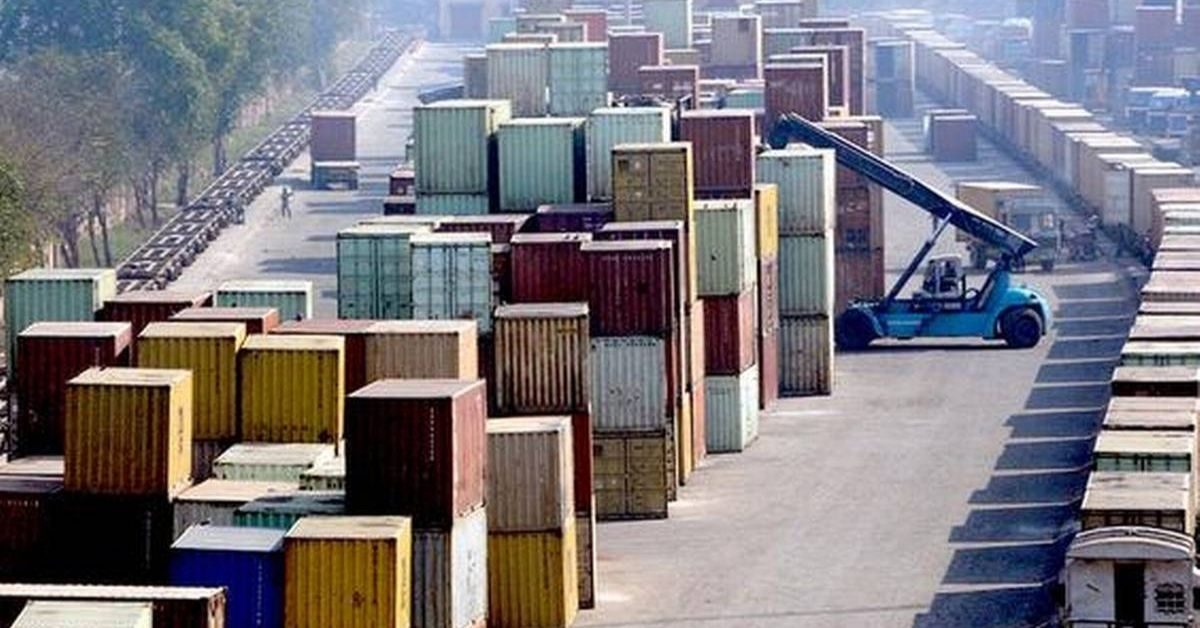Nigeria’s Federal Ministry of Transportation is in the process of designating all dry ports to be port of origin and destination, according to the Executive Secretary, Nigerian Shippers’ Council (NSC) Mr Emmanuel Jime.
Speaking at a stakeholders sensitisation programme/launch of Operational Manual for Inland Dry Ports in Nigeria, while allaying stakeholders’ fears on efficiency of the ports, Jime said the inland dry ports was conceived to operate in the same way as the seaport, the only difference is that there is no sea where the dry port is established.
The programme was organised by the NSC on the auspices of the Federal ministry of transportation in Lagos State.
He said, “This implies that all the agencies of government that are concerned with cargo clearance in the seaport like the Nigeria Customs Service will be present in the dry port.
“Also the Federal ministry of transportation designating all the dry ports to be port of origin and destination, clearly indicates that the ports are made effectively to function the same way as the seaports.
“So stakeholders will not experience any constraints as they are learning from mistakes experienced at the seaport.
“Also, two months ago, I had the privilege of sitting with the comptroller general of customs and we instituted a Memorandum of Understanding (MoU) with customs to provide an enabling environment to ensure efficacy of the dry port.”
Jime said the strategic importance of producing the manual which articulated the step-by-step procedures for receiving, storing, handling and delivery of cargoes as well as highlighting the operations, responsibilities of agencies and timelines for discharging such tasks was sine- quanon.
“The operators and regulators are compelled to abide by the operational processes as contained in the manual,” he said.
“The manual describes functions and activities of the dry ports and specifies layout designs, outlines the activities that are to be performed, laying down the sequence of operations, address operations’ procedures as it relates to export and import activities and others.”
He noted that the manual was based on best international practices adapted to suite Nigerian context.
He added that each dry port would have its own specialties, organisational implementation, layout constraints, and services offered and would therefore amend aspect of the manual in a case-by-case basis.
“It may be pertinent to state that this manual will be used as a measure of performance by the regulator (NSC) and will be subjected to future review to be in tandem with obtainable best practices, upon agreement of the two parties (operator and regulator),” he said.
The Minister of Transportation, Mr Muazu Sambo while unveiling the manual, observed with joy the collaboration the ministry, NSC were forming with the Nigerian Railway Corporation, Nigerian Ports Authority, customs and other stakeholders to ensure its implementation.
“Equally appreciate state governments where these inland dry ports are located. It is indeed worthy of note that these govemments donate land free from all encumbrances, pay compensations where necessary, and provide infrastructure.
“I urge participants to take full advantage of this sensitisation workshop for full implementation of the operational manual as a workable policy document that will drive the operations of the Inland dry ports in Nigeria,” he said.
Muazu represented by Mr Victor Ewache, Deputy Director, Inland Container Depot of the ministry of transportation, noted that the operational manual would guide inland dry ports in Nigeria.
Also, Mr Leonard Ogamba, President, Lagos State Shippers Association noted that the manual was a document that would bring pressure to bear on government agencies when they failed to do the needful.
Mr Remi Ogungbemi, President, Association of Maritime Truck Owners(AMATO) urged the ministry to remove all difficulties that hindered cargo evacuation at the port so that the manual would work effectively.
Mr Ayodele Durowaiye, Assistant General Manager Operations, NPA, noted that the country port was operating way beyound their capacity and so the need to introduce the inland dry ports.
“The only way to optimise the port is to have facilities like this, it will provide options for shippers and consignees if they function effectively,” he said.
Mr Ajibola Odusanya, Customs Deputy Controller in charge of administration at the Apapa port, noted that customs was ready to collaborate and cooperate to make the vision to come true.
“To ensure decongestion at the port, customs have introduced scanners for smooth opertions and they will ensure that officers escort containers to the inland depot at any given time,” he said. Other stakeholders present at the programme are: Manufacturers Association of Nigeria, Costco shipping, Cross Marine Services, TinCan Island Container Terminal and others.







